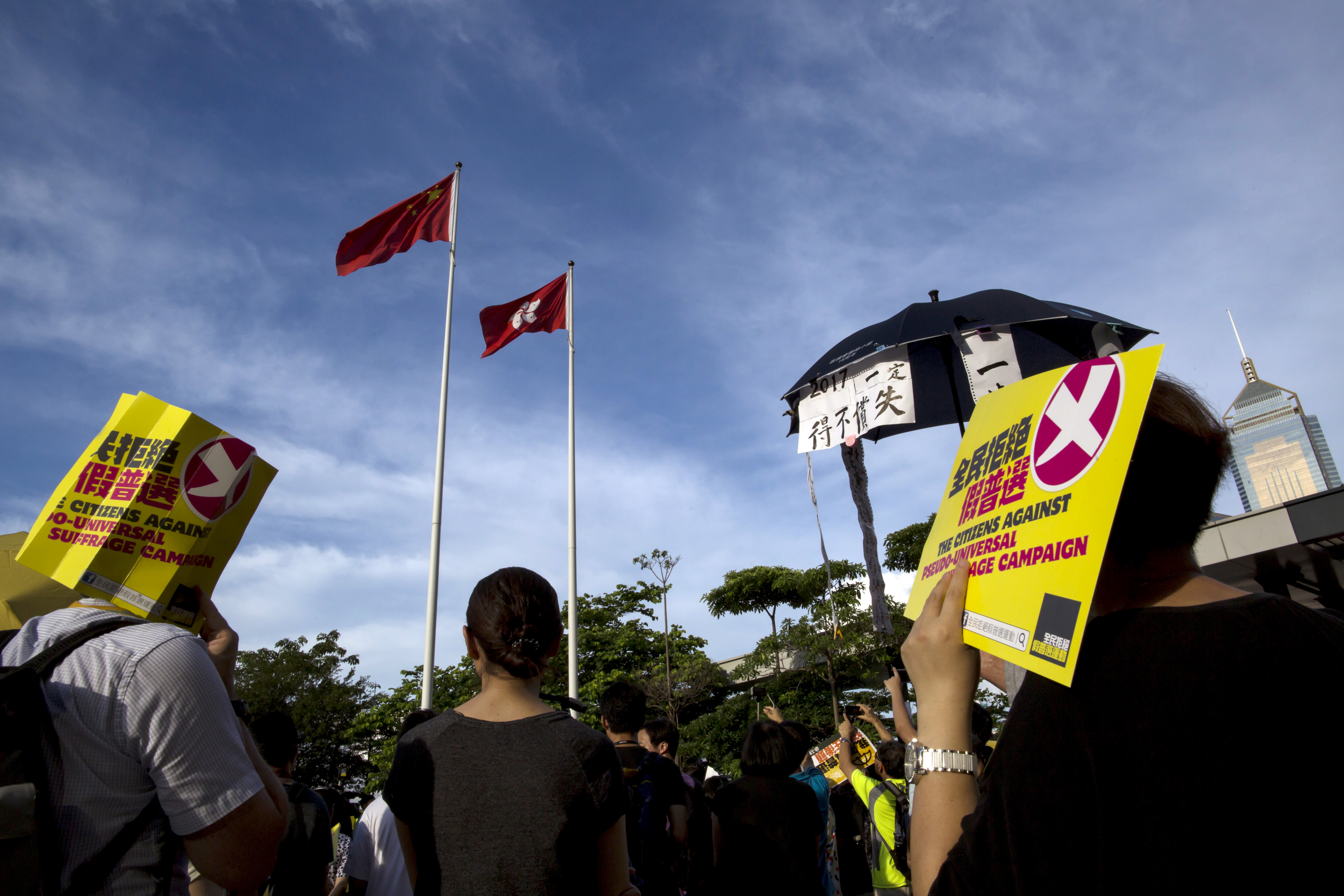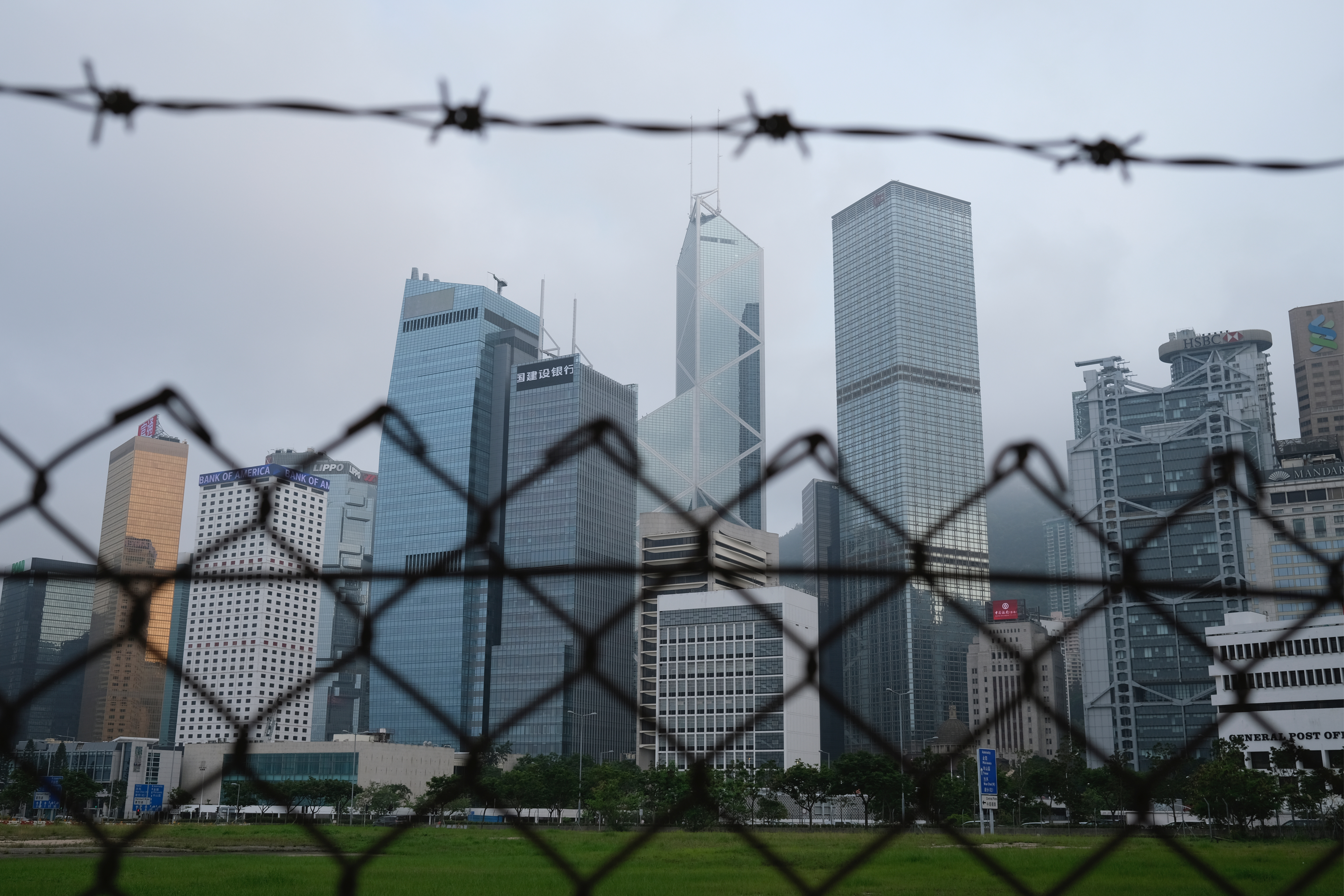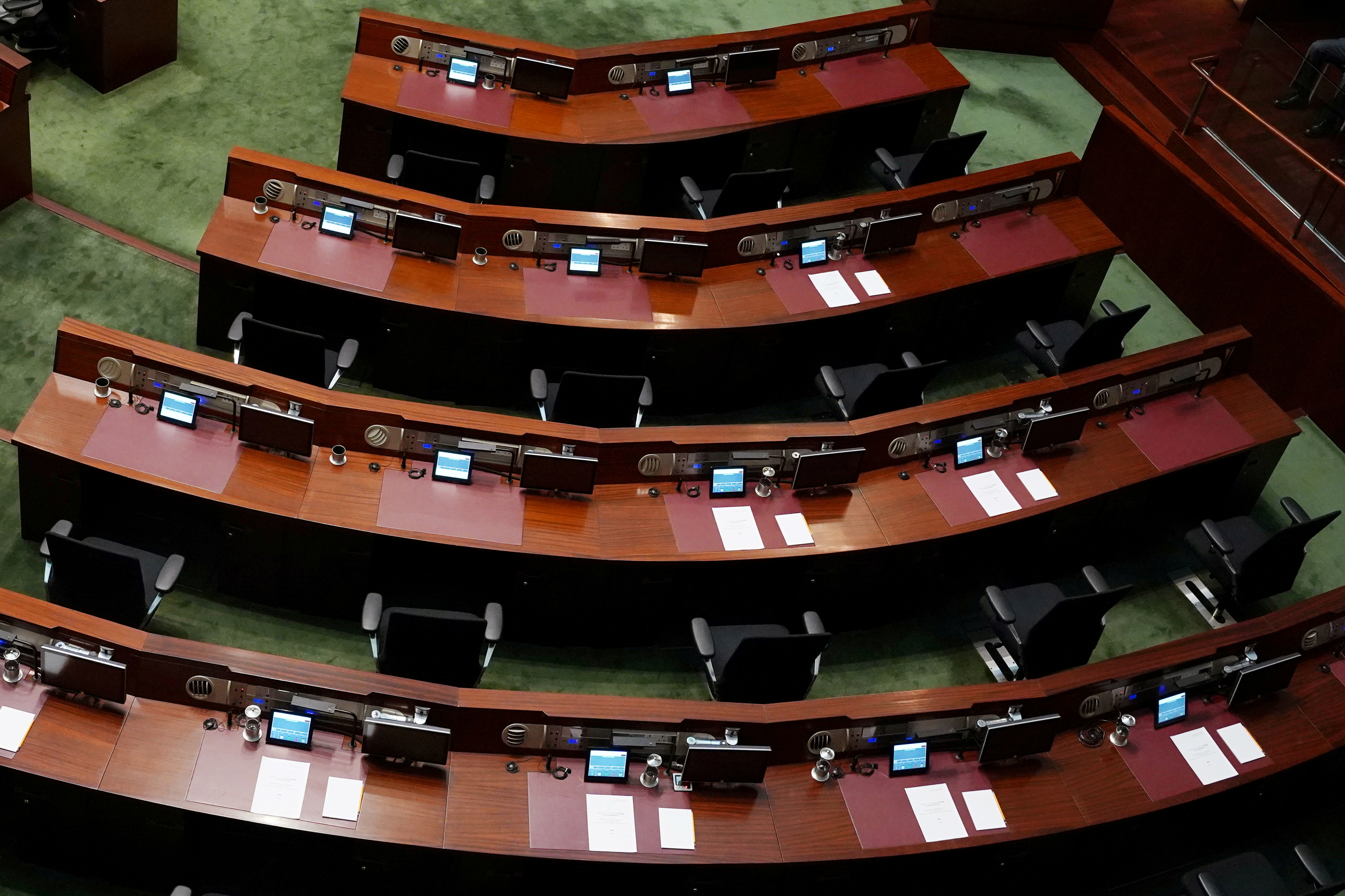NOT THE DICTATORSHIP OF THE PROLETARIAT
THE DICTATORSHIP OF THE PARTY
Yew Lun Tian

Beijing's proposal for Hong Kong electoral reforms could prevent "dictatorship of the majority", a pro-Beijing Hong Kong lawmaker said, calling people who want one man one vote "politically immature".
China's rubber-stamp parliament is deliberating plans to overhaul Hong Kong's electoral system to ensure Beijing loyalists are in charge. read more
Hong Kong representatives to China's parliament, in Beijing this week for an annual session, say the changes are necessary and desirable.

"Many people in Hong Kong are politically immature," Martin Liao, who sits on both Hong Kong's and China's legislature, told Reuters by phone on Saturday.
"They think 'one man one vote' is the best thing, and they take advice from countries that don't even have 'one man one vote'," he said, referring to how neither the U.S. President nor the British Prime Minister is elected by a popular vote.
The proposed changes, which include expanding the city's Election Committee from 1,200 to 1,500 people, and expanding the city's Legislative Council from 70 to 90 seats, will make Hong Kong's electoral system more "representative", and less prone to "dictatorship of the majority", Liao argued.

Critics however worry that the expansion means that Beijing would be able to stack the two bodies with even more pro-establishment members, to gain the numerical superiority needed to influence important decisions such as the election of the city's Chief Executive, leaving Hong Kong voters with less direct say in who they want to lead them.
"If you are not a patriot, it's going to be hard for you to get in," Tam Yiu-chung, the only Hong Kong representative in China's top lawmaking body, the National People's Congress Standing Committee, told Reuters by phone on Saturday.
The following issues have been at the centre of the struggle of Left Communism:
The Role of the Party in the Revolution
In Pannekoek's Party and Class he characterises a party as “an organization that aims to lead and control the working class”; his General Remarks on the Question of Organization look to the future for new forms of organisation suitable for the emancipation of the working class.
Paul Mattick's The Masses and the Vanguard concludes:
“The militants who call themselves the “Vanguard” have today the same weakness that characterizes the masses at present. They still believe that the unions or the one or the other party must direct the class struggle, though with revolutionary methods. But if it be true that decisive struggles are nearing, it is not enough to state that the labour leaders are traitors. It is necessary, especially for today, to formulate a plan for the formation of the class front and the forms of its organizations. To this end the control of parties and unions must be unconditionally fought. This is the crucial point in the struggle for power.”
and his Council Communism proposes Councils (a.k.a. soviets) as a way forward; his 1967 Workers Control expresses the idea from another standpoint.
Bordiga also wrote on these themes: See The System of Communist Representation, Is this the Time to form “Soviets”?, Towards the Establishment of Workers' Councils in Italy, Party and Class (1919-1921).
The issue was also debated at the Second Congress of the Comintern:
- The role of the Communist Party in the proletarian revolution
- Discussion on the role of the Communist Party continued
- Theses on the role of the Communist Party continued
- The Formation of Soviets
Trotsky's Communism and Syndicalism puts the Bolshevik position on the role of the party in the Revolution; Paul Matick's The Mass and the Vanguard makes the opposite case very powerfully.
No comments:
Post a Comment